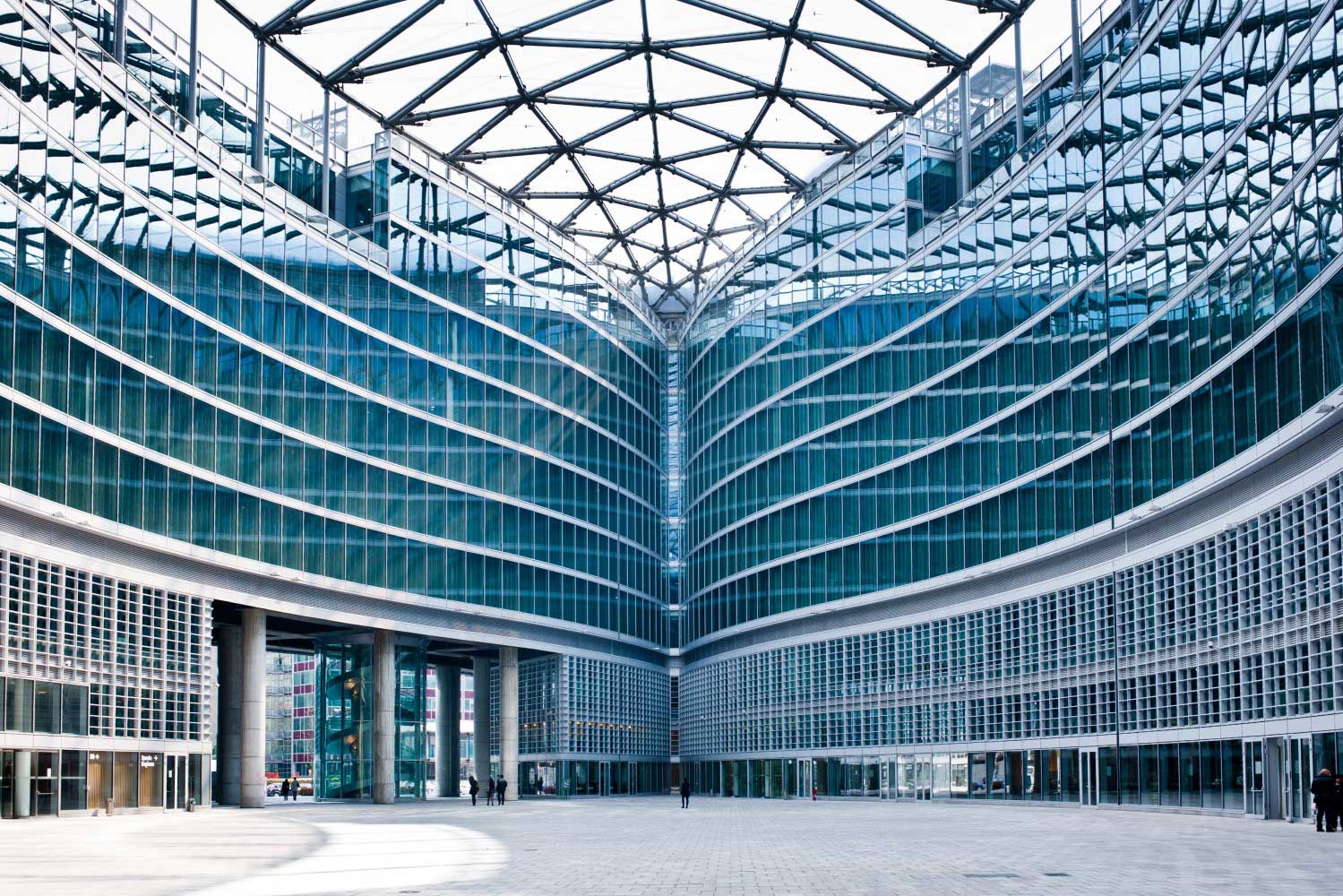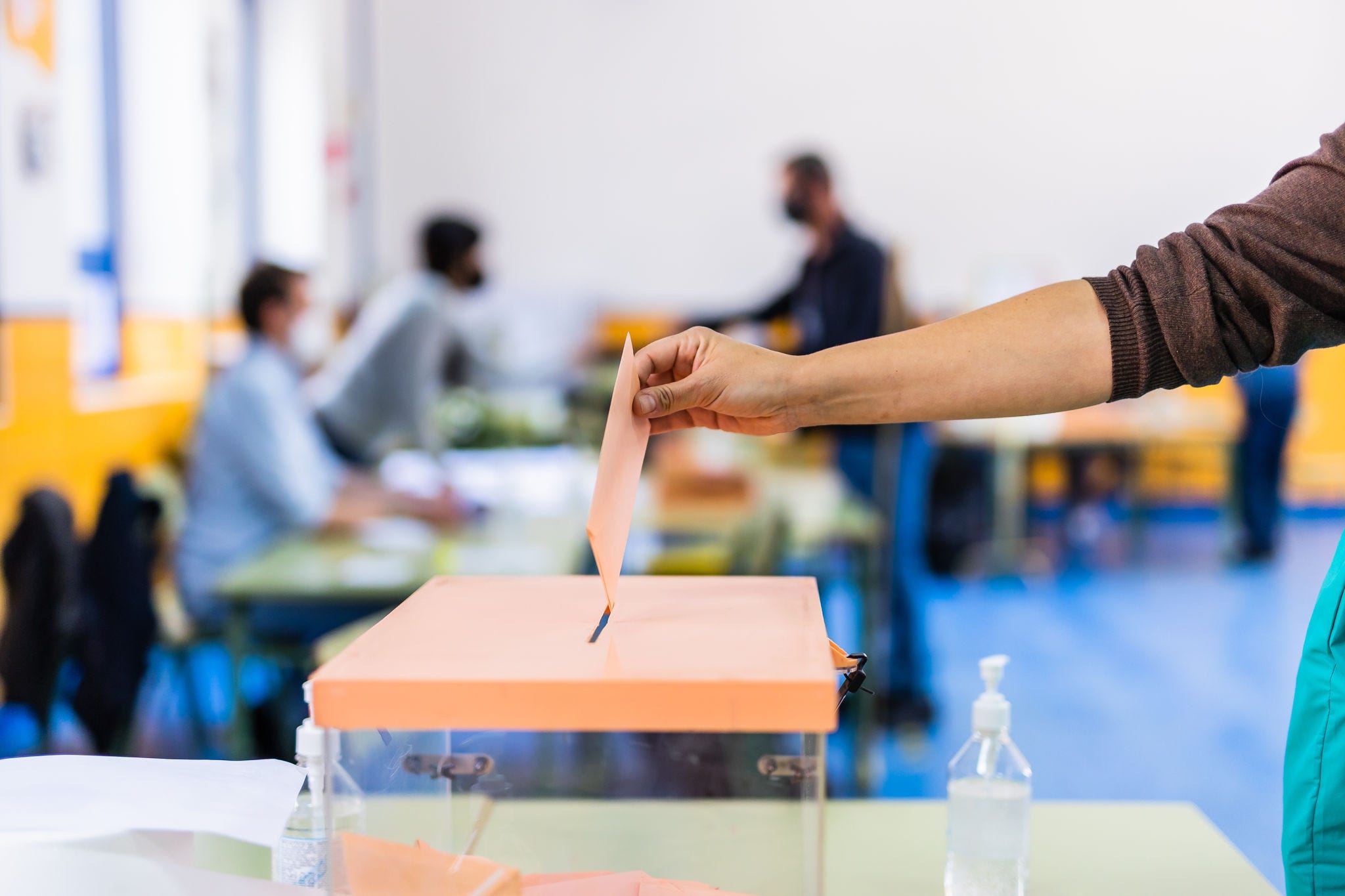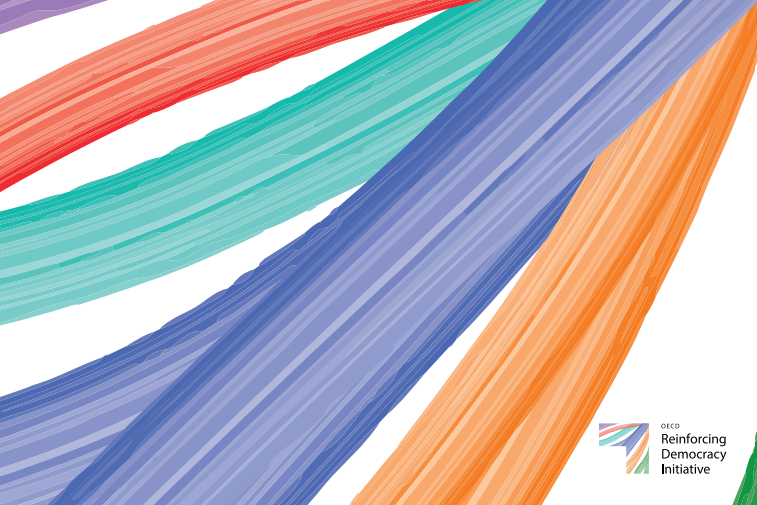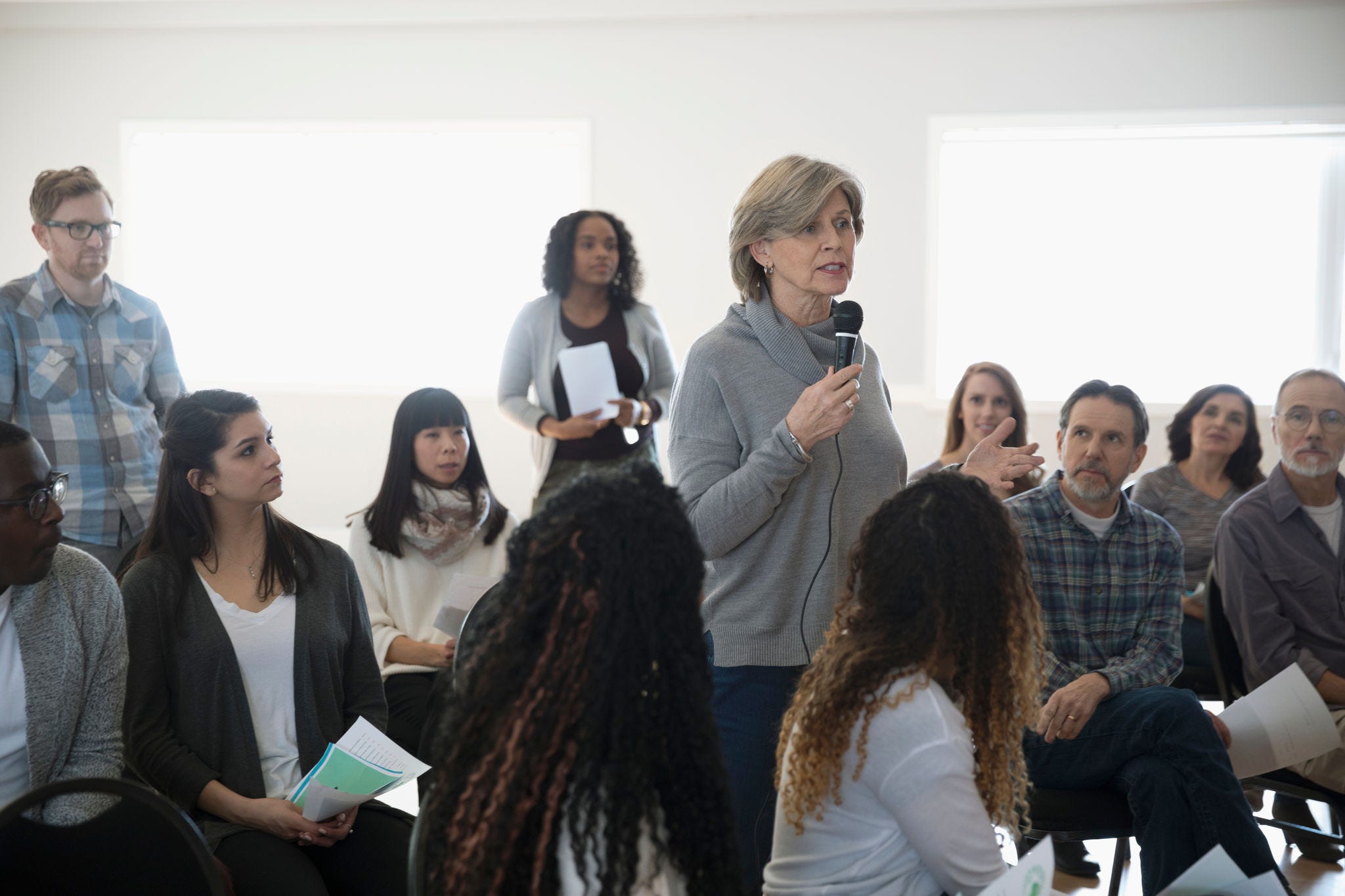Citizen participation is an indispensable element of effective democratic governance. It ensures that voices of those affected are heard and that they are involved in decision-making and the implementation of decisions. After decades of efforts to promote and advance citizen participation, there is a need to recalibrate it to more effectively address the continuing challenges of ineffective and undemocratic governance.

What is the missing link?
I argue that it is the strengthening of public accountability that is the weakest among the efforts to advance citizen participation. The new frontier of citizen participation is the strengthening of public accountability through synergy.
Accountability is a necessity in a democracy because ‘public office is a public trust.’ Democracies have been failing because governments have been failing in enabling accountability.
The ability of citizens to exact accountability is a leverage to ensure that their inputs to policy-making are carried out effectively. Accountability checks discretionary power to prevent abuse and it enables continuous improvement of governance. Citizen participation throughout the policy and public financial management cycle is crucial and it cannot be as effective without engagement in accountability.
How do we enable public accountability?
State-society synergy is the fusion of the strengths within government and in civil society to advance and protect reforms. In the Accountability Research Center (ARC), we have been studying strategies that synergize government and citizen action for reforms and integrates citizen action at multiple levels. These powershifting strategies help connect the dots to make the accountability ecosystem work to deliver sustainable reforms in governance.
In Filipino, the closest word to synergy is pagsasanib o pagtatagpo. It connotes empowerment and strengthening. We need to build and harness synergy to strengthen public accountability.
At Government-Watch (G-Watch) we call this process “constructive accountability.” The common goal is to improve the effectiveness of democratic governance through strengthened public accountability. The operational term is co-constructing. Together, we co-construct how we will account for the exercise of power, how programs and services have performed, how we fared in achieving our shared responsibility and our collective accountability.
There are three applications of synergy that fill the most crucial gaps and exploit the emerging opportunities in constructive accountability in today’s development and governance practices:
First, synergizing citizen actions at different levels.
To enable oversight that pin down where the systemic bottlenecks to public service deliveries are, to prevent governments’ deflection of accountability and to build citizen power by leveraging presence at different levels, citizens must be present at all levels of public decision-making — from community level to international — and must be able to connect those efforts.
Second, marry reform actors and actions within government with those of civil society.
State and society are spaces viewed as separate with different set of actors: government and civil society. We need to not only bridge this, we need to build solidarity around it — “pagtagpuin ito,” in Filipino — towards a common cause.
The divide is no longer between government and civil society. The new divide is between those who are pro-reform, pro-accountability, pro-social justice and pro-democracy, on the one hand, and those who are against it. And the process is a co-construction of accountability relationships among stakeholders and policy actors of public decision-making. Both the supply side (state accountability mechanisms) and the demand side of accountability (citizen action and voice) must be made to work coherently as part of an ecosystem.
For instance, G-Watch’s partnership with Pasig, a city government in The Philippines, through PRO-Health, G-Watch-ARC’s heath accountability initiative, synergizes efforts by the local government and G-Watch to form a progressive civil society in Pasig that can help ensure that the reforms being achieved today will be sustained beyond the term of their progressive and reform leader, Mayor Vico Sotto. Mayor Sotto sets the vision and provides the inspiration, while G-Watch with the Pasig City’s CSO Unit, operationalizes the capacity-building of civil society based on decades of experience of G-Watch.
The other arena are existing mechanisms in countries that synergize civil society and government, some in the form of multi-sectoral consultative bodies. These bodies need to be reformed and re-energized. Three aspects of these bodies need revisiting: power-sharing, inclusiveness and capacity. Is there truly an equitable sharing of power between government and civil society within these bodies? Are there other sectors and groups that need to be represented? How can civil society representation be more effective?
Third, synergize humanitarian and direct service delivery initiatives with accountability efforts.
Humanitarian efforts and support to direct service delivery cannot end up being an excuse of governments not to deliver on their mandate and to deflect accountability. Humanitarian efforts and support to direct service delivery must promote effective and responsive governance to keep it from being used in patronage-based politics. This can be done by closely integrating accountability efforts with humanitarian work or embedding the former in the latter. Providing aid only in areas where governments are justifiably constrained to deliver. Monitoring and assessment of public services with the participation of citizens should accompany all decisions on humanitarian priorities.
Private support and donations must be synergized with citizen action for accountability. The latter determines where the gaps and needs are and engages government to respond to those needs and gaps first. For needs and gaps that cannot be filled for acceptable and accountable reasons, private support and donation can come in, which hopefully includes supporting continuation of such social accountability efforts. Itong pagtatagpong ito, this synergy of humanitarian or private sector support for direct services and social accountability can be leveraged to make government more responsive and effective. It is a force that, if wielded, can be transformative.
The development partner community needs to learn and be transformed too.
Learning is an indispensable element of the new frontier of citizen participation. ARC and G-Watch are committed to learning from, with and for accountability frontliners and rights defenders in the Global South as we deem this voice to be underrepresented in development and democracy discourse. Just as government and civil society reformers must learn about citizen participation, so should the donor community.
For instance, enablers of citizen participation in government and the development community need to meet citizen action where it is at. This process needs to be dynamic and pro-active to opportunities and not passive and reactionary which is how development assistance is designed today.
After decades and decades of support to citizen participation, there have been wins, including the continuing vibrancy of citizen action in many countries, even in contexts of closing civic spaces. However, there are also bottlenecks that are specific at a given time and space of ongoing citizen action.
How can government and international development partners lessen the red tape in its support to citizen participation? What movement-based approaches can international development partners learn to adopt in their funding management?
Here is another example of how the development community can be proactive in its support to citizen participation. Back in the 1970s and 80s, support to social movements and NGOs was done differently, which some argue was better than today. In the past, donors and partners supported core funding, which was flexible and well-grounded on principles of solidarity and broader strategic direction. It was during this time that non-government organizations were effective in reaching out to communities, organizing, supporting and enabling social movements while producing groundbreaking knowledge work.
In recent times, development aid or international funding has turned into project-based, short-term funds, anchored on specific tool, brand or shoutout, with myopic and narrow goals sometimes tied to a broad agenda that seems to be a mere lip-service detached from a real strategy. There is now a growing recognition that this has weakened NGO work, particularly the part that involves organizing, advocacy and knowledge-building, as most of NGOs’ time are devoted to either doing a song-and-dance to get funding or working on administrative papers to account for every cent that has been spent. The focus on the administrative effort to search for, or maintain, funding is arguably robbing the NGOs of their depth, their grounding and their spirit. In many instances, NGOs have also closed down. This has also affected social movements as they get pulled into the struggles faced by NGOs that are supposed to provide them with much-needed support and solidarity.
Finally, we need to rethink how we learn about and measure “success.”
Giving primacy to change in policies and institutions tilts the balance of power between citizen and governments in favor of the government because the government has more, if not the sole, power in delivering on this indicator of success.
To enable synergy that enhances public accountability, efforts to strengthen movements and civil society must also be considered a success – even if it does not immediately yield policy change. When evaluating success, we should factor in solidarity, experience, adaptability and resilience against all the odds and given all the opportunities. Support to movement-based approaches is an investment in the deepening of democracy and the transformation of society to address today’s pressing challenges such as the climate crisis, inequality, impunity and digitally-enabled miseducation of the people. Transformation at the societal, organizational, even personal levels must be considered as part of what success means to deepen democracy.
To end, let me reiterate that synergy is oneness that builds on independent strengths. It is unity that is not stuck but progressive. It is unity that doesn’t favour nor perpetuate the status quo; instead, it progresses, builds and grows — grounded on the dynamism of those that forge the same synergistic energy. It is synergy in strengthening public accountability that is the call of our time.
In conclusion: Ito ay pagkakaisa na kung saan lahat tayo ay nagtatagpo at nagsasanib-pwersa batay sa sama-samang pagkakaunawaan, tunguhin at layunin: pagpapalakas ng pananagutan. Which means: this is the kind of unity wherein we all meet, synergize our efforts and forge alliances toward a common goal: strengthening public accountability.
2024 OECD Global Forum on Building Trust and Reinforcing Democracy
This blog is part of a collection of opinion pieces that showcases diverse perspectives on the new frontiers of citizen participation, from thought leaders and practitioners across national and local government, academia, business, trade unions, and civil society. It offers insights and inspiration for discussions at the 2024 Global Forum on Building Trust and Reinforcing Democracy, and future multidisciplinary work at the OECD.
The Global Forum takes place in Milan, Italy, 21-22 October 2024. Register to follow the discussions online: https://www.oecd-events.org/global-forum-on-democracy/en
This blog article should not be reported as representing the official views of the OECD or of its Member countries. The opinions expressed and arguments employed are those of the authors.




